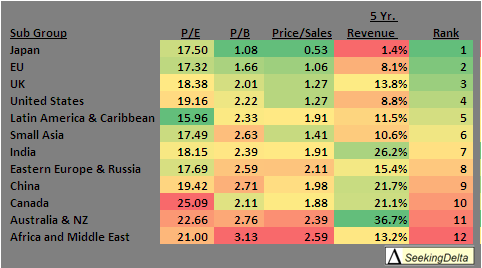Silly example.Ambar wrote:If ACC cement stock has risen from 20 Rs to 1000Rs in the last 22 years,it is not because they kept 're-inventing' cement, but because they became more efficient in production and supply towards a growing demand. If companies existed solely on 'invention' of new technologies, then 99.999% of all companies would be bankrupt in no time.
Most of the impact of an invention is felt when its introduced on a mass scale into the market and is ABSORBED by society. Asphalt road transport network is NOT fully absorbed into India. India's lack of roads & infrastructure in general were/are a constraint on development for the last 22 years. Hence building roads may be profitable/productive provided the economy requires them for growth. Best way to measure if the economy requires them is through private capital financing road building with tolls to recoup their investment.
There are no lack of roads in the US.
Put this ACC cement company in the US tearing up asphalt roads and rebuilding it with the same type of material using its own capital and it will be bankrupt in short order. There are no productivity gains and hence no profits in putting the same wine in a new bottle and calling it growth. Stock market does not rise 50% based on tearing up good roads and rebuilding them with the same material.
For all the hate spewed towards bailing out the banks, people forget that an unprecedented 350+ banks have been shut down in less than 2 years.
Works to interest of the large commercial banks which are shareholders of the federal reserve. The only thing it reenforces is their monopoly in the market, but I guess you did not realise that.
Ain't it the greatest job in the world to claim you are perpetually a systemic risk to society and need funds ripped off from the productive to fund your gambling ventures ? Sh&t man, I need to find a job like that shuffling paper and creating systemic risk for society and stop wasting my time developing real products for society. Its like a perpetual motion machine where any handout of money can be justified on the basis of systemic risk. Meanwhile one can continue a parasitic existance of questionable benefit to society.The largest banks that had a systemic risk across businesses were saved.
Libertarians don't talk about socialising the losses of crap banks. They talk about banks and their shareholders eating their own loss with no systemic risk shenanigans.Ironically, some of the most vocal libertarians were tagging the line of Norwegian govt during its banking
The 'reserve' that is attached to the names of every central bank in the world should surely be self-explanatory.
Yes, it explains how commercial banks behind the federal reserve fool people into thinking its something other than a counterfeiting racket. Say if counterfeiting is good, why don't we all do it? Can I fire up my printer and do a bit of quantitative easing to ease my debts?
Its as stupid as saying we found Bernie Madoff running a gigantic ponzi scheme and we need to give him a bailout to keep the racket going as exposing it will pose a great risk. But guess what, not exposing it poses an even greater risk.if there is a systemic collapse, no bank can ever repay every rupee of all its depositors money on a single day.This leads to the spread of fear and uncertainty and more failures.
There is no magic trick. Instead of the productive losing money, the money loses value everytime printing & bailouting is done. So quit fooling yourself that anything is 'saved' when the same fools who perpetuate the fraud rush to bail out their buddies.
The role of a 'reserve bank' is to mitigate such a scenario by making sure the banks have enough capital to fulfill their obligations and restore faith.
Print money + run up debt. I think I could put a monkey in place of Bernanke with 2 buttons in front of it. I realised a long time ago what a fraud economics had turned into. People just invent terminologies and try to make it sound like a science when in fact its just quackery of robbing peter to pay paul (while making a fee on the robbery!).
So what are you saying, people need to start squandering or have their money stolen from them and spent by financing crooks (who incidentally caused the crisis) and jobs will appear ?If the private sector continues to hoard cash, there is no ways those jobs are coming back.
I fear like so many financial guys, you may have spent too much time away from real work dreaming up silly theories on how to lead people into a financial mess. If nothing else, one reason for shutting down this useless middleman industry is so these guys get reaquainted with doing a productive job instead of being a con man.

